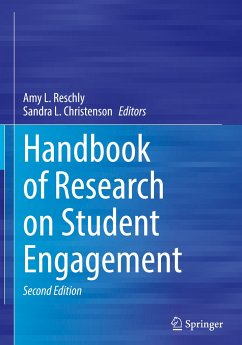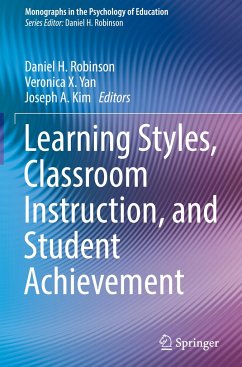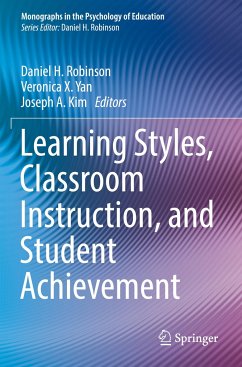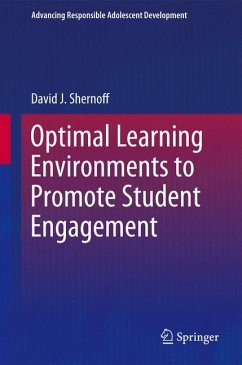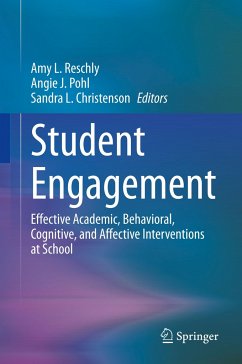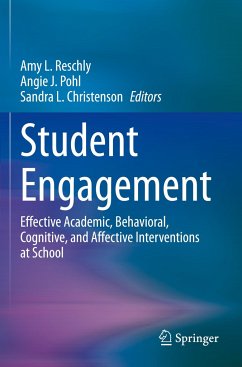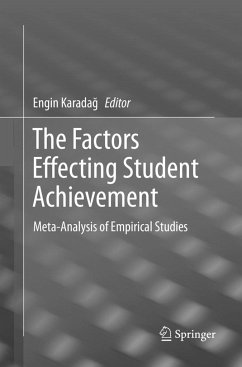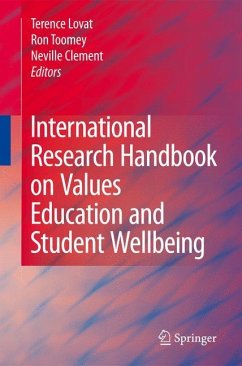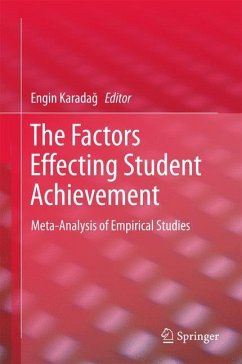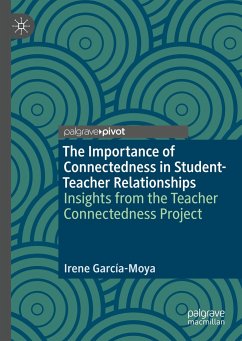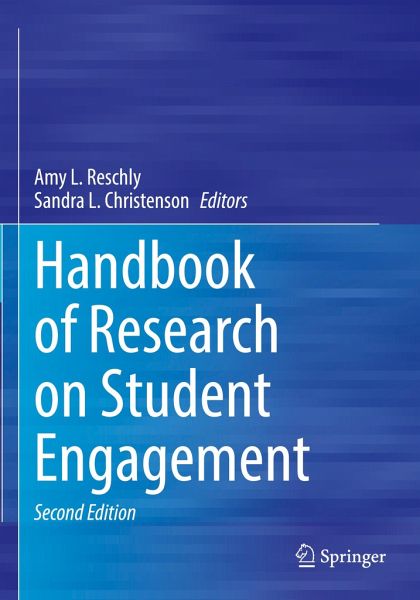
Handbook of Research on Student Engagement
Versandkostenfrei!
Versandfertig in 6-10 Tagen
166,99 €
inkl. MwSt.

PAYBACK Punkte
83 °P sammeln!
The second edition of the handbook reflects the expanding growth and sophistication in research on student engagement. Editorial scope and coverage are significantly expanded in the new edition, including numerous new chapters that address such topics as child and adolescent well-being, resilience, and social-emotional learning as well as extending student engagement into the realm of college attendance and persistence. In addition to its enhanced focus on student engagement as a means for promoting positive youth development, all original chapters have been extensively revised and updated, in...
The second edition of the handbook reflects the expanding growth and sophistication in research on student engagement. Editorial scope and coverage are significantly expanded in the new edition, including numerous new chapters that address such topics as child and adolescent well-being, resilience, and social-emotional learning as well as extending student engagement into the realm of college attendance and persistence. In addition to its enhanced focus on student engagement as a means for promoting positive youth development, all original chapters have been extensively revised and updated, including those focusing on such foundational topics related to student engagement as motivation, measurement, high school dropout, school reform, and families.
Key areas of coverage include:
Demography and structural barriers to student engagement.Developmental and social contexts of student engagement.Student engagement and resilience.Engaging students through effectiveacademic instruction and classroom management.Social-emotional learning and student mental health and physical well-being.Student engagement across the globe, languages, and cultures.
The second edition of the Handbook of Research on Student Engagement is the definitive resource for researchers, scientist-practitioners and clinicians as well as graduate students in such varied fields as clinical child and school psychology, social work, public health, educational psychology, teaching and teacher education, educational policy, and all interrelated disciplines.
Key areas of coverage include:
Demography and structural barriers to student engagement.Developmental and social contexts of student engagement.Student engagement and resilience.Engaging students through effectiveacademic instruction and classroom management.Social-emotional learning and student mental health and physical well-being.Student engagement across the globe, languages, and cultures.
The second edition of the Handbook of Research on Student Engagement is the definitive resource for researchers, scientist-practitioners and clinicians as well as graduate students in such varied fields as clinical child and school psychology, social work, public health, educational psychology, teaching and teacher education, educational policy, and all interrelated disciplines.





